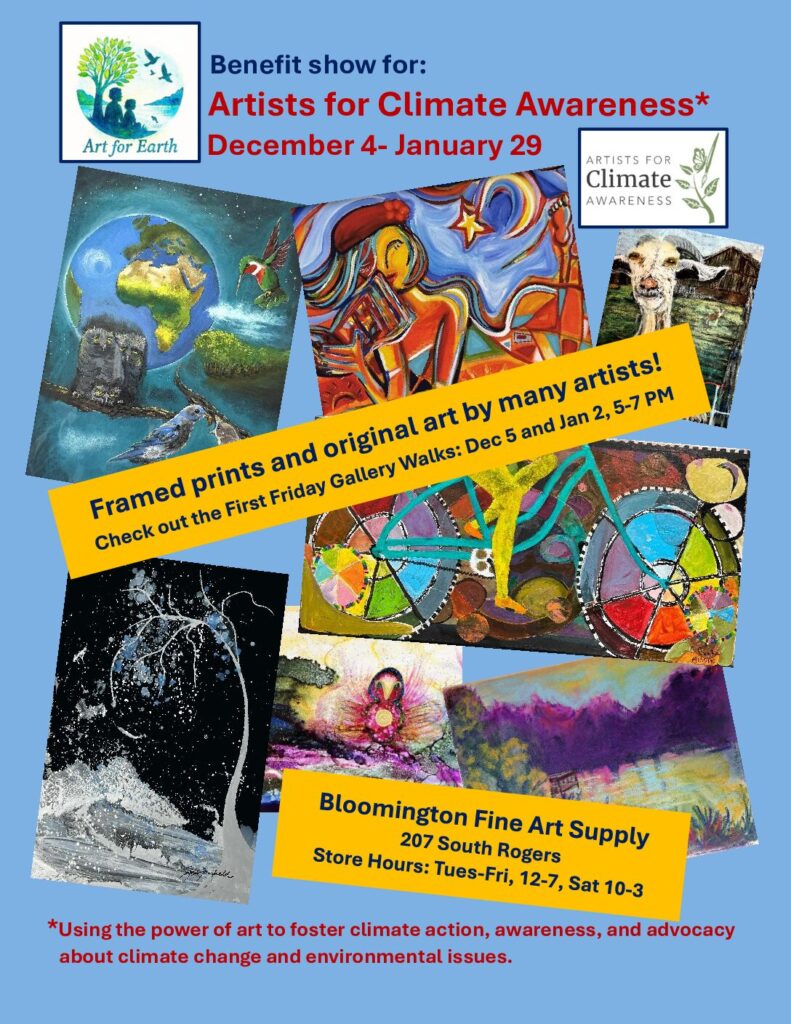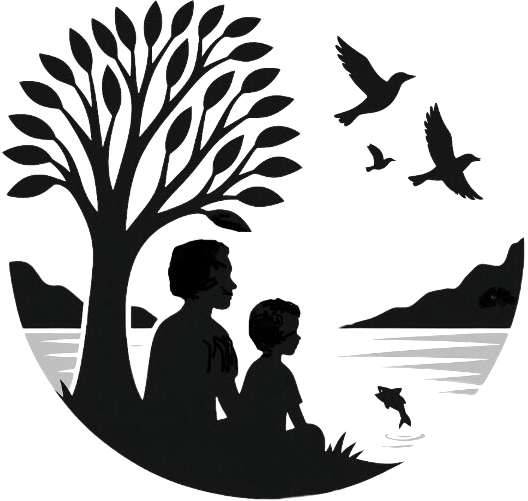This Project Agreement between the Center for Sustainable Living and its Projects was approved on February 17, 2018 by the Board and representatives from all of the Projects.
Project Creation and Continuance
Submission of Ideas
The Center for Sustainable Living functions as an umbrella organization with multiple grassroots initiatives known as “Projects.” Community members with Project ideas are welcome to submit their Project ideas for consideration. To submit a Project idea, follow these guidelines:
- Designate one main contact person, known as the Project Coordinator.
- The Project Coordinator must complete a provided form which details the Project Proposal and Plan (sent by email to the board) which includes the following:
- One paragraph summary description of the proposed Project (this paragraph will be used at the CSL’s website when the Project is listed)
- Detailed Project Purpose
- Budget (Revenue / Expenses / Cash flow)
- Timeline
- Participants
Decisions
The CSL Board of Directors will accept proposals by email from new Projects at any point in the year. Once the written proposal is received by the board, a time slot will be scheduled during the next board meeting for Q&A with the Project’s proposer(s).
The CSL Board may table the decision to adopt the Project for a future meeting. Decisions shallbe made within three months from the board meeting at which the proposal is presented.
Acceptance
If a Project is adopted, all parties must sign a Project Agreement including the Project Coordinator and Treasurer, and all CSL Executive Officers. At that moment, the Project must designate a member (not necessarily the Project Coordinator) to represent the Project and become a member of the CSL Board of Directors.
Project Agreement Renewals and the Annual Meeting
All Project Agreements expire at the end of the first quarter of the calendar year and are re-signed every year at the Annual Meeting. The Annual Meeting is scheduled to happen by the 3rd Thursday of February.
Criteria for Consideration
The Board of Directors of the Center for Sustainable Living reserves the right to accept or deny any Project. General criteria for evaluation consist of the following:
- Does the Project align with the mission of CSL?
CSL mission: To make available information, services, projects and networking opportunities for those interested in exploring ecologically sustainable and resilient ways of thinking, living, and interacting in our community. - Does the Project fill an area of interest that no other Projects are currently filling? Does the Project fill a gap in the Bloomington-area ecology of nonprofits (helping to keep our local network of organizations and volunteers sustainable, by reducing overlap, is an aid to the community at large)?
- Does the Project fill the requirements of 501(c)3 status (e.g. educational, not lobbying)?
- Is the Project reasonable and achievable in its scope and budget?
- Is there a core group of interested individuals to support the project?
- Does the Board have confidence in the proposed project leadership?
Services Provided by the Center for Sustainable Living to its Projects
The Center for Sustainable Living will provide the following services to any Project that is adopted by the Board Of Directors and enters into a Project Agreement:
- Project Guidance
- 501(c)3 Non-Profit Status
- Ability to use the CSL’s tax-exempt number to buy legitimate goods and services for the pursuit of the Project’s mission and purpose
- The CSL has tax-exempt accounts with various businesses, such as Menards, Kleindorfer’s, Lucky’s, PayPal, Google, etc; Please ask the Board whether an account exists with a specific business before you attempt to create a new one.
- Ability to receive tax-deductible donations from the public and sponsors.
- Information distribution about the Project’s activities or events through the CSL email newsletter, website, and online calendar.
- General Liability insurance policy
- Speak to a Board member if you have specific coverage questions
- Some limitations apply.
- The insurance policy expires on March 3rd of each year
- Annual Federal and State tax filing
- Optional Bank Account
- We encourage Projects who need regular access to money (more than twice a month) to have their own account. Otherwise, the Project’s money will be kept in the common CSL account, and the Project treasurer and CSL treasurer must keep track of the Project’s cash flow (see section on Financial reporting, for more details)
- Use of shared assets, as available (e.g. color printer, office supplies, meeting space, tabling materials, etc).
- Web hosting and IT assistance for online services (website, PayPal button, social media, etc).
- Case-by-case support for cash flow derived from grants and reimbursements, if we know of the grant and its payment arrangements prior to application.
- A shared Google Team Drive with resources for all Projects
- Volunteer application forms, treasurer’s financial report template, Project Agreement document, volunteer hour-tracking forms, liability waivers, logos, publicity resources, etc.
Services Not Provided
The Center for Sustainable Living will NOT provide the following services:
- Legal counsel
- We recommend seeking legal council through the IU Nonprofit Legal Clinic, a free service that the CSL and its Projects have used in the past).
- Insurance coverage for events/activities/locations that fall outside of the CSL’s general liability insurance policy.
- Events and locations needing liability insurance are a Projects’ responsibilities, however, we encourage Projects to get liability coverage for their events/locations through the CSL’s insurance agent, as we typically get significant discounts when we purchase our policies as a package.
- Talk to the board treasurer for more details, and to get a cost estimate with our insurance agent.
- Payroll processing for employees.
- The CSL and its Projects may hire independent contractors, as long as the worker status in determined according to the IRS Independent Contractor Test. If a Project pays independent contractor fees, these must be appropriately reported by the Project treasurer, and the corresponding W9 forms must be submitted to the treasurer of the Board of Directors at the time that the Project’s annual financial report is submitted.
- Fundraising
- Fundraising is a component of every Project.
Continuing Project Expectations
The Center for Sustainable Living expects that Projects will fulfill all of the following sections.
Participation
- When in doubt about an action, please contact the Board for guidance and support.
- Refrain from lobbying and political campaign activity that could jeopardize our 501(c)3 status.
- Designate one person to become a member of the Board of Directors and attend quarterly Board meetings. If the selected Board member is not able to attend, the Project can designate a substitute. It is the responsibility of Project leaders to choose a substitute.
- Designate one person to be the Project Coordinator; this person may or may not be the same person designated to represent the Project on the Board of Directors.
- Designate a Project Treasurer who will be responsible for keeping track and reporting all money flow.
- If a Project Treasurer resigns/is dismissed and is replaced, the Project Coordinator needs to inform the CSL about these changes immediately and in writing, as well as request a training for the new treasurer. If no replacement is found right away, the Coordinator will immediately assume treasurer duties, until a replacement is found.
- Attend the Annual meeting with the Board of Directors. The Annual Meeting is mandatory for all Project Coordinators and Treasurers. The Annual Meeting will cover:
- A review of the Project Agreements, followed by the renewal of the 1 year agreement between the CSL and the Projects.
- A training session on financial management and bookkeeping. This training will cover a review on formatting of quarterly and annual financial reports (financial reports may be updated every year in order to meet the IRS requirements to file the form 990; this training session is mandatory for all Project Treasurers and Coordinators).
- A 45 minute training session on website design and maintenance, shared online Drive folders, CSL forms, PayPal buttons, blog and newsletter.
- Optional time for Q&A
- Include the name of the Center for Sustainable Living or the CSL logo somewhere on all advertisements, banners, posters, t-shirts, literature, brochures, handouts, websites, and all other materials created and distributed by the Project.
- Provide an annual report including: volunteer hours, volunteer-member roster, major events past and planned, grant applications pending, needs from CSL, suggestions for CSL, uses of the CSL EIN. The report shall be submitted to the Board Secretary before the Annual meeting. If requested, the CSL will provide printed sheets for tracking hours and volunteers; all record-keeping material will be available through the shared Team Drive.
- Utilize CSL-provided hosting and domains, paid from the CSL general fund. Projects will receive at minimum a domain (e.g. www.ProjectName.org), an email account (e.g. contact@ProjectName.org) and a website that will be hosted within the CSL’s Dreamhost account. Project websites may be as simple as a single ‘About’ page with a description of the Project and contact information. The CSL’s IT & Communications Coordinator (it@simplycsl.org) will assist Projects in creating/maintaining/migrating websites into the CSL’s hosting account. The CSL will also provide Team Drive space for Projects to store their files, and email accounts as requested by the Projects, such as contact@ProjectName.org or group@ProjectName.org.
- Submit to the Board any contracts or agreements, including Memoranda of Understanding (MOU), rent contracts, etc, which would financially or legally obligate the CSL. Contracts must be submitted to the Board for approval PRIOR to implementing such an agreement.
Finances
- The CSL Board may conduct an audit of the Project’s books if the financial reports are unclear.
- Project treasurers shall submit quarterly and annual financial reports to the Board Treasurer, using the CSL’s spreadsheet template:
- Financial reports shall be emailed to the CSL treasurer by the following dates: April 15th , July 15th and Oct 15th, for quarterly reports, and January 15th for the annual report.
- If the Project did not have any financial transactions, it shall submit a report showing opening and closing balance for the quarter.
- Upon approval of a Project by the Center for Sustainable Living Board, the Project Coordinator and Project Treasurer will participate in a 1-hour training session on financial management and bookkeeping.
- This training will cover practices such as keeping track of revenue and expenses, organization of receipts, bills, bank statements, deposit slips, etc., and formatting of quarterly financial reports.
- Receipts shall be kept for seven years and records shall be kept for seven years.
- If a Project has regular retail sales (more than twice a month) they need to apply for a new location to be added to the CSL’s Retail Merchant Certificate (RMC). Talk to the Board Treasurer about your retail sales before applying for a RMC. The Board Treasurer may decide whether the Project should apply for a new RMC location or share the existing CSL’s RMC location. The Project is responsible for paying sales tax on all retail sales, whether it is through its own RMC, or through the CSL’s RMC.
- Donate 5% of all monies accrued by the Project (including donations, grants, and sales) to the Center for Sustainable Living for overhead expenses, on a quarterly basis. If a first year project feels the 5% is onerous they may request a waiver, for their first calendar year, from the board.
- If the Project and the Board decide that the Project should maintain its own bank account in conjunction with the CSL:
- The account will be a sub-account of the main CSL account in the name of the Center for Sustainable Living “doing business as” (DBA) the Project name.
- One of the signatories on the account must be the Treasurer of the Board of Directors and the other, the Project’s treasurer. Additional signatories may be added if needed.
- If the Project and the Board decide that the Project will use (and share) the common CSL bank account:
- The Project treasurer may access the Project’s funds by requesting a check from the Treasurer of the Board. Funds shall be requested at least 5 days in advance. Alternatively, the Project Treasurer may request the reimbursement of an incurred expense as long as corresponding receipts are presented.
- The Project treasurer may deposit funds into the Project’s account by giving the Board Treasurer a check, cash, or by directly depositing the money into the account and notifying the Board Treasurer of the transaction.
- If a Project intends to do a fundraiser that involves a raffle or gaming, the Project needs to contact the Board prior to planning such an event. The Board has specific guidance regarding raffles and gaming (see our “Indiana Gaming Commission Guidelines for Charity Raffles” document contained in the shared Project Team Drive).
- Submit any grant application that requires the use of the CSL’s EIN and is greater than $1000 to the CSL board prior to application.
Project Closures and Independence
Revocation of the Project Agreement
Upon the agreement of the Board, a Project may be dissolved that has not complied with the Project Agreement.
Closing a Project
If a Project’s leaders have indicated a desire to close the Project, or are no longer actively participating and responding to inquiries, the Board will announce that the Project is in a probationary period of 90 days. If, after that time elapses, no one else has come forward to continue the Project, the Project’s assets will be distributed. If the Project’s leaders are still available, they may choose if the assets are given to another Project or are made available to CSL as a whole. If the Project’s leaders are not able to make this choice, the assets will go to CSL as a whole.
To Close a Project, Project leaders must submit a written statement to the CSL Board, accompanied by a detailed writeup as to why the Project is to be closed.
Becoming Independent
Due to IRS guidelines, only if this new entity is to be a non-profit, or to join another non-profit may assets owned by the Project transfer with it. Otherwise, assets will remain with the CSL as legally stipulated.
To initiate the process of becoming a separate entity, Project leaders must submit a statement about their intention to leave, a plan for the disbursement of funds, and a timeline for the separation.


